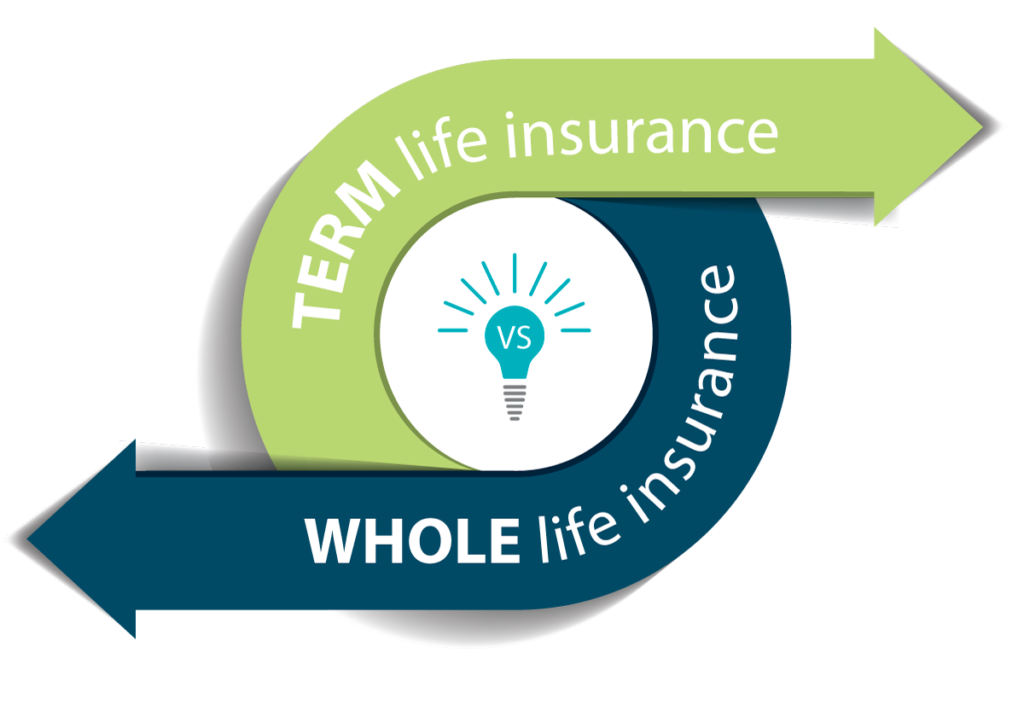Last Updated on June 14, 2025
Having Diabetes and searching for life insurance isn’t the easiest thing to do. Like most people, you know you need life insurance. But what type of coverage is best for you and you family?
Good news for people with Diabetes. You will likely have no issues getting approved for both Term Life Insurance and Whole Life Insurance policies. Simply speak with one of our agents, and we’ll happily explain your options to you.
People with Type 1, and Type 2 Diabetes can qualify for all types of Life Insurance policies.
Two of the most common talked about policies are level term vs whole life insurance. We’ll try and provide an overview of these two types of life insurance, so you can et a better understanding of life insurance options that are available to you.
What are the Differences Between Term and Whole Life Insurance?
When deciding what type of life insurance policy is best for you and your family, you are going to want to first determine what your financial objectives are. Your life insurance policy you ultimately go with will provide your family with financial protection, in the event of you passing away. The policy you choose is very important. The following will show the differences between term and whole life insurance. Here are the term vs life insurance pros cons:
Pros of Term Life Insurance
- Provides life insurance for a specific length of time. Popular options are 10, 15, 20,25, or 30 year term lengths
- Rates remain level for the term length you choose
- Policy can be converted to a permanent policy, without undergoing an exam or answer health questions
- Death benefit remains level
- Death benefit is paid out immediately. Only exclusion is suicide in first two policy years
- Term Life Insurance is the most affordable type of policy you can buy
- You are not limited to owning just ONE policy. You can ‘ladder’ multiple term policies for different amounts of insurance and with different term lengths
- You can own a Term Life Insurance policy, and a Permanent policy. When the term policy expires, your permanent plan will be in place and provide life insurance
- Term Life Insurance policies are ideal for SBA Loans
- Term Life Insurance can come with “living benefit” riders
- Term Life Insurance less expensive compared to Permanent Life Insurance
Cons of Term Life Insurance
- The coverage is temporary
- Lack of flexibility with policy. Meaning you can’t increase coverage, without undergoing underwriting.
- Policies don’t accrue cash value over time
- May not offer coverage to people with High Risk Health conditions
- Could end up costing you more money over time, if you were to apply for coverage at an older age
- Smaller amounts of coverage are tough to find. $25,000 is usually lowest amount you can find
 Depending on your financial goals and objectives, Term Life insurance could be the best life insurance policy for you. Now that you know about the term vs life insurance pros cons, feel free to simply contact us, and an agent can review your situation with you, and make recommendations.
Depending on your financial goals and objectives, Term Life insurance could be the best life insurance policy for you. Now that you know about the term vs life insurance pros cons, feel free to simply contact us, and an agent can review your situation with you, and make recommendations.
Term vs whole life insurance pros and cons:
Pros of Whole Life Insurance
- Provides permanent life insurance, that covers your whole life
- In addition to providing a death benefit, the policy accumulates cash value over time
- Depending on the type of Whole Life insurance policy, the death benefit can increase over time
- Some Whole Life policies have limited pay options. Meaning you only pay for 10 years, 20 years, or maybe to age 65
- Whole Life Insurance dividends can be used to help offset premiums
- Cash value can be accessed thru loan provisions, or by you surrendering the life insurance policy
- Coverage can usually be purchased for $10,000 or more
- Some Whole Life Insurance policies offer ‘guaranteed issue coverage’ meaning they accept all applicants.
- Premiums never increase
- Policies can offer “living benefit” riders without extra costs
- Cash value could be 1035 tax free exchanged into an annuity, if choosing to surrender the life insurance policy
Cons of Whole Life Insurance
- Premiums are much higher, compared to Term Life Insurance
- If you take out a loan on the cash value, and pass away, the amount of loan offsets Death Benefit
- Whole Life Insurance often times thought of as an Investment. It’s a life insurance product, with a secondary feature of providing a cash value account.
- The ‘growth’ of cash value varies year to year.
- Whole Life Insurance is not a ‘liquid’ investment or alternative to retirement accounts
These are the term vs whole life insurance pros and cons. Whole life policies are ideal for people who want permanent insurance need, in addition to cash value growth. Possible examples of ending a whole life insurance policy could be for Estate Planning purposes.
What to Consider
There are many things to consider about your current financial situation, to determine what type of life insurance policy would be best for you and your family. We are happy to discuss what type of policy, or types of policies are ideal for your current and future situation.
As your life changes, so will your financial situation. There isn’t any ‘one size’ fits all when it comes to life insurance. And in most situations, you’ll end up with adding, or removing policies to your life insurance portfolio.
Below are some sample situations, as to why you might need Term Life Insurance.
+ WHY Term life Insurance is Ideal
- You’re young. Term Life Insurance will provide most amount of coverage, for least amount of money
- Only need life insurance for a mortgage obligation
- Only need life insurance to satisfy a loan obligation
- Only need life insurance to protect against outstanding student or medical loans
- You are only worried about replacing your income for a certain number of years
- You need life insurance for a certain number of years for child support or alimony obligations
Maybe you are in your early 30’s, have a few children, and you are the primary income earner for your family. You don’t have a lot of disposable income, but you are concerned with protecting your family.
Like most people in your 30’s, you may have student loan obligations, a mortgage, and you want to replace 10 years worth of your income, should you pass away. In cases like this, Term Life Insurance is perfect for you!!!
Let’s now look at why a Whole Life Insurance policy may be in your best interest.
+ Why Whole Life Insurance is Ideal
- You prefer a permanent policy, that accrues cash value
- You prefer a policy, that you may be able to roll over cash value into an annuity into the future
- You need a permanent policy, to address funeral and death expenses
- You want to donate your policy to a charity
- You want a life insurance policy to address estate taxes
- You want a policy, that you’ll only pay on for a set amount of time, before it is paid up.
- You are in poor overall health, and you’ll only qualify for guaranteed issue whole life policies.
If you are an individual who is wanting to take out a permanent policy, which would allow you to possibly use csh value during retirement years, if you don’t pass away first, whole life insurance might be a good fit.
Maybe you are in your 50’s, and you feel you will need some amount of permanent life insurance. Maybe you want the policy to address estate taxes, funeral costs, or even leave an inheritance to your children. So between whole life insurance vs term, Whole Life Insurance would be ideal for you.
Should I have a Term and Whole Life Insurance Policy?
Level term vs whole life insurance, which is best for you? Or shall you have both? Maybe. But that decision will need to be addressed by your short, and long term needs for life insurance. Using a ‘laddering’ technique is a common way to have multiple policies, running concurrent with each other.
Example
You need $500,000 of total life insurance for the immediate future. But you think you’ll still have a need for $100,000 of permanent life insurance needs.
You could take out a $400,000 term life insurance policy for a 15 or 20 year duration. And a $100,000 whole life insurance policy. As you get older, your term policy expires, which isn’t an issue as you don’t need that life insurance any longer.
Now you have $100,000 of whole life insurance in coverage, to protect you family, and to meet your financial objectives.
This is just one example. There are endless ways to structure a life insurance portfolio. For many people, it is ideal to have both term life insurance, and a permanent life insurance policy in force at the same time.
If I Have a Term Policy can I Convert to Whole Life Insurance in the Future?
 Depending on the Life Insurance company that you initially purchase term life insurance thru, you should have some Conversion options available. This is an important discussion to have with your agent, when you first decide on a life insurance company. Not all companies are equal, when it comes to term conversions.
Depending on the Life Insurance company that you initially purchase term life insurance thru, you should have some Conversion options available. This is an important discussion to have with your agent, when you first decide on a life insurance company. Not all companies are equal, when it comes to term conversions.
Some life insurance providers will allow you to convert your policy to whole life before the end of your term duration. Generally, there would be no Underwriting, or health exams involved. Other providers of term life insurance may only give you 10 years into the policy, to convert to whole life. That’s not a conversion feature that’s in your best interest.
People who should consider converting their term life insurance policy are generally people in their 40’s and 50’s, who have a need for permanent insurance. Also, if your health has worsened considerably since you first took your term life insurance policy out, converting your policy may be the only way you can obtain a new insurance policy.
Often times people, as they get older, develop cancer, heart disease, or even mental diseases. Conditions like these may not allow you to apply for coverage. Perhaps the only option you have, is to convert all or part of your term life insurance policy to a whole life product. As a reminder, you don’t have to convert the entire amount of coverage. As you get older, generally the need for life insurance decreases.
Everyone’s situation is different, when it comes to their life insurance needs. The good news is, people with Diabetes can qualify for all types of life insurance, as people who do not have Diabetes.
Life insurance companies are starting to understand that people with Diabetes, can live normal and healthy lifestyles. In fact life insurance rates for Diabetics are at an all time low.

Simply contact us today, and let help recommend proper life insurance products, and companies given your Diabetes health history, and your financial needs. Our number is 888-629-3064. A 5 minute phone call is all it takes to begin receiving real and accurate quotes and understand which insurance is ideal for you between whole life insurance vs term.




